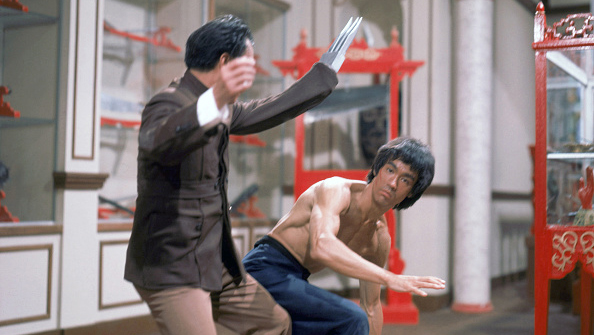Best audio cables 2025: our expert picks of quality interconnects
A simple, cost-effective way to give your hi-fi system a boost
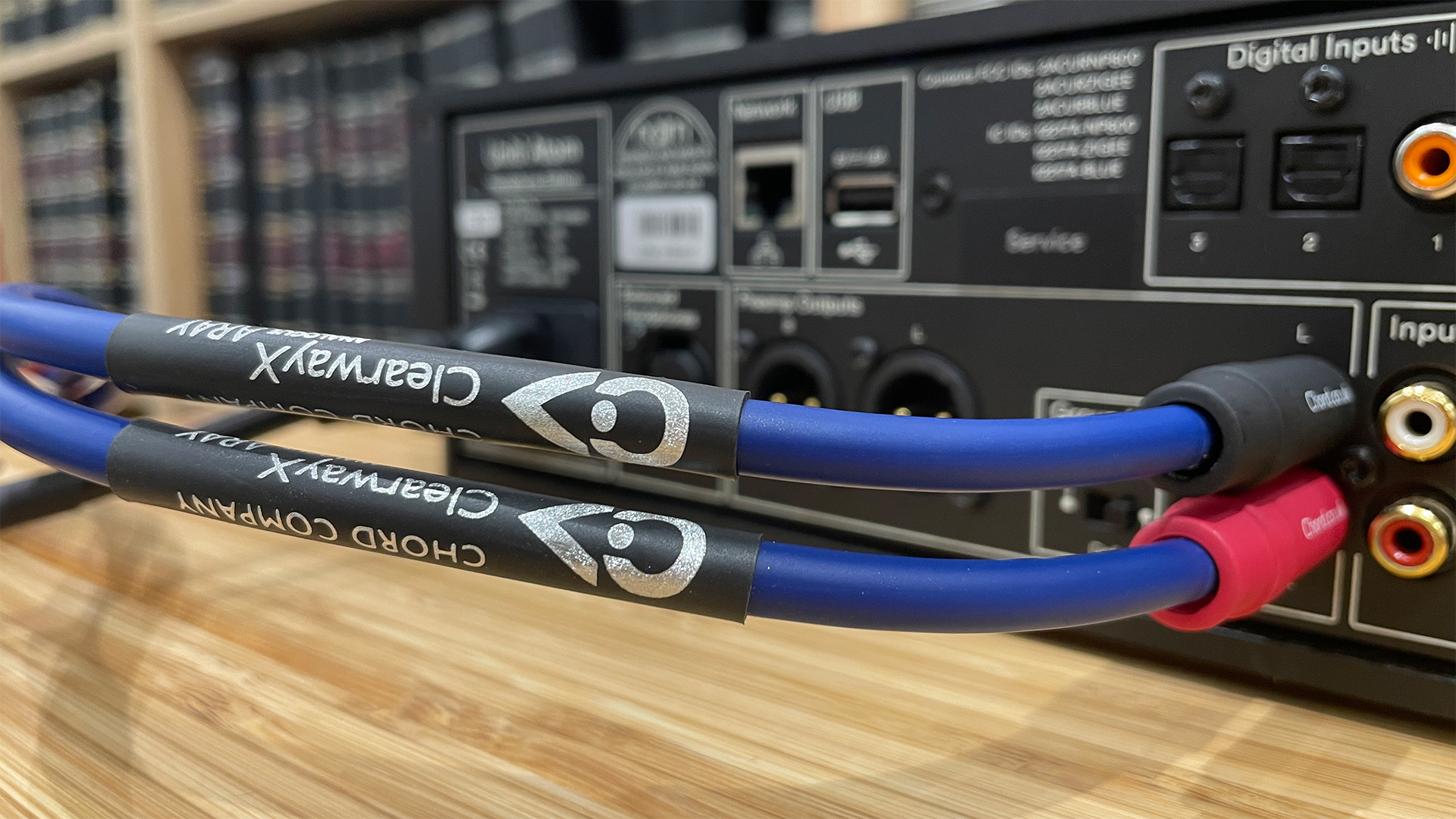
It may not seem necessary at first to focus much on the cables in your hi-fi system, but it can be one of the most important factors in your system's overall performance. After all, an audio cable carries the analogue signal between your source (a CD player, turntable or music streamer) and your stereo amplifier – that's an awful lot of crucial information and it is important to keep that audio signal as pure and accurate as possible with the least amount of interference or degradation.
This is why the quality of audio cables – otherwise known as 'audio interconnects' or 'RCA cables' – can significantly affect your system's performance. Cables matter, and they're often a major aspect of most hi-fi systems that gets overlooked time and time again. As with speaker cables, this is an area you don't want to overlook or scrimp on if you want your hi-fi system in tip-top shape.
So where should your buying decision start? Well, you can skip ahead to our 'how to choose the right audio cables for you' section below, or simply scroll down to see the three audio cables we most recommend.
This trio represents the best-value audio cables our expert in-house reviews team has tested and span various budgets (the prices are per metre) and suit most user needs, too. Whether you're after a decent budget cable for your modest set-up or your high-end system demands more investment and care, these RCA interconnects will make the most of your hi-fi's potential.
The quick list
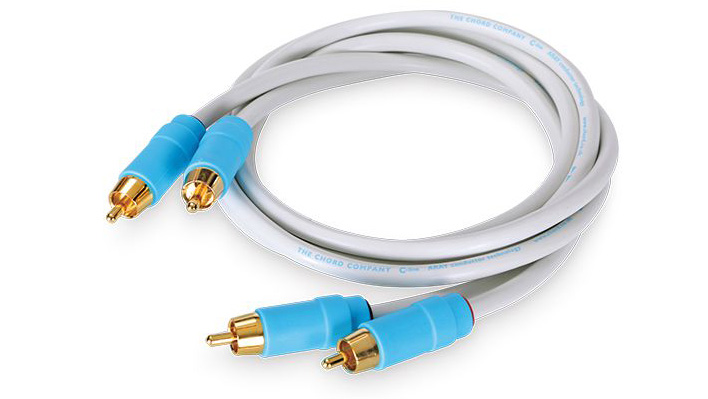
The sweet-spot combination of price and performance, Chord's C-line interconnect is sonically compatible with a wide range of hi-fi products.
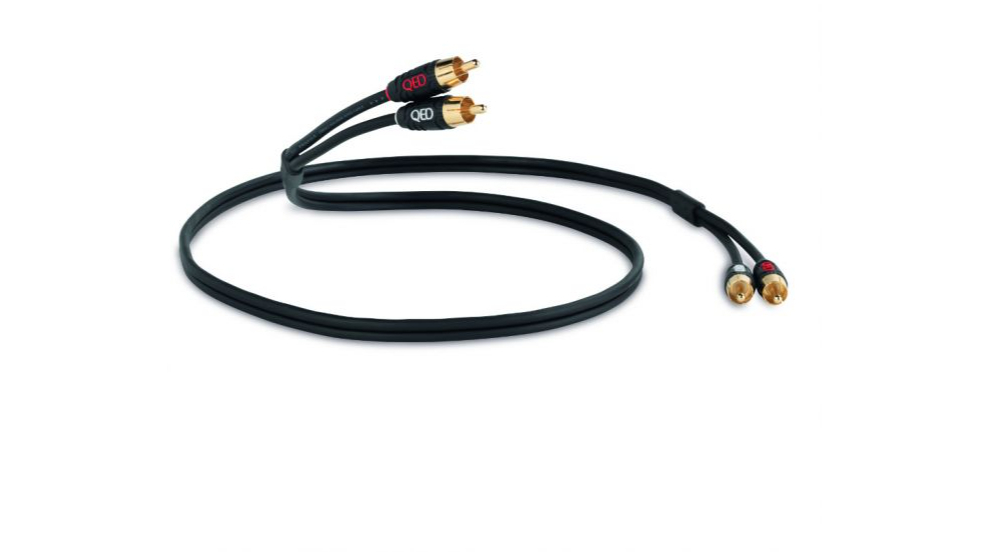
Ideal for entry-level or modest systems, this long-proven audio interconnect remains a solid buy for replacing the cheap cables that come in the box.
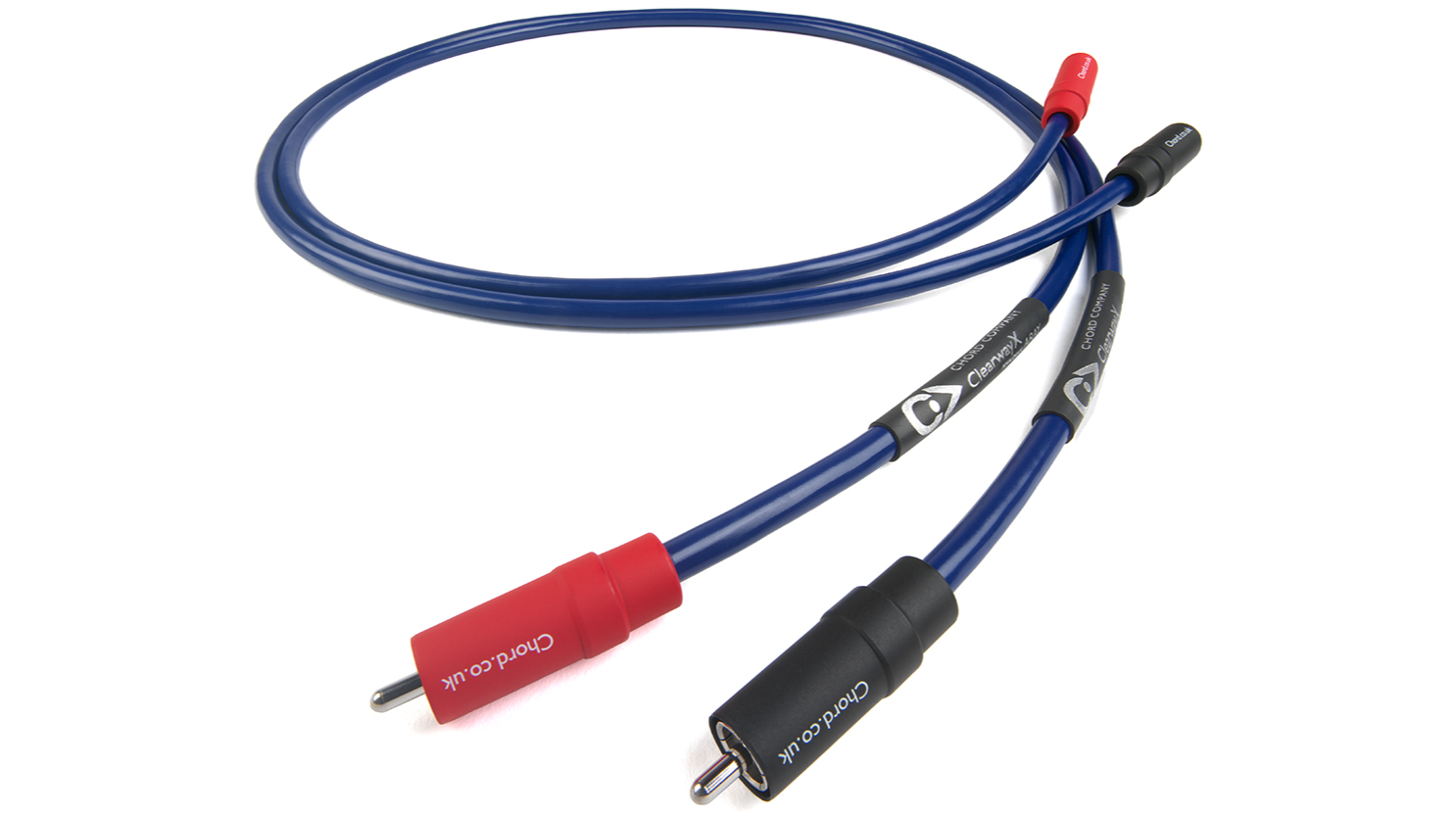
Perfect for more demanding, premium systems. If you have a higher budget, this updated Chord Company interconnect will bring out the best in your hi-fi system's performance.

Having written about hi-fi for over a decade and spent years of that time in our state-of-the-art testing facilities on a daily basis, reviewing everything from high-end stereo amplifiers to entry-level turntables, I've heard the difference poor (and high quality) audio cables make to a system – so I highly recommend that you pay attention to your system's cabling (that includes speaker cables too) if you want it performing at its best. Having had a hand in testing all three cables on this page, I'm confident one will suit most people's needs and budgets. Still, before committing to a purchase, make sure you read our review to ensure its character will suit that of your system.
Best audio cable overall
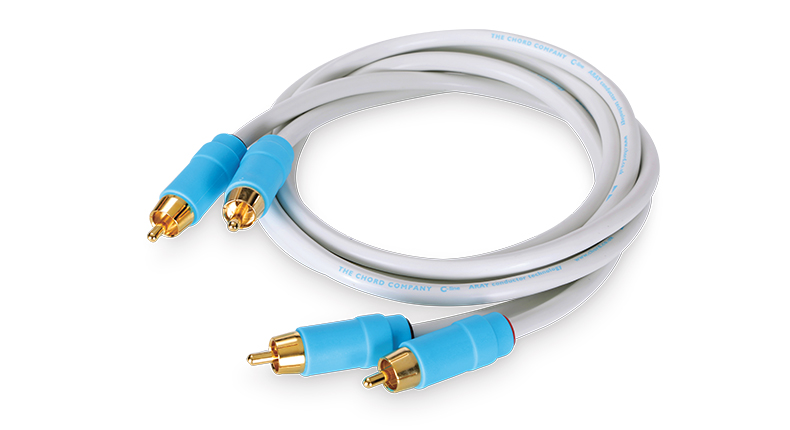
Specifications
Reasons to buy
Reasons to avoid
If you've ever wondered what difference a metre of cable can make to your system, we'd urge you to give the C-line a listen.
This is the venerable British cable company displaying once again an understanding of what makes hi-fi great, with the best-value audio cable we've heard at this affordable price point. It never loses sight of what matters – the musicality of your system – and is a deft hand at communicating your system's detail levels, making for an entertaining and informative listen.
Indeed, in terms of overall enjoyment, little at this price level comes close to what the C-line can do for your system. And that's why this model has won multiple What Hi-Fi? Best Buy Awards on the trot.
Read our full Chord Company C-line review
Best budget audio cable

Specifications
Reasons to buy
Reasons to avoid
Despite the über-budget price tag, the QED Profile analogue interconnect punches above its weight, helping to deliver a tight sound that’s uncluttered and airy. Detail levels are surprisingly good for the money too, and the well-made Profile cables also show ability with their handling of dynamics.
These cables have been around for years now but remain a solid buy if you are looking to go one better than your typical cable supplied in the box. As a first upgrade for an entry-level system (where components are a couple of hundred pounds or dollars each), this QED interconnect is a great option.
Read our full QED Profile review
Best premium audio cable

Specifications
Reasons to buy
Reasons to avoid
The original Clearway analogue interconnects were around for a good while but were finally revised in 2022 in the Chord Company Clearway RCA Analogue (2022) to introduce new plating to the plugs. The even newer and current Award-winning ClearwayX ARAY Analogue RCA interconnect is another premium option if your budget can stretch ever further, and especially if your system is transparent enough to benefit from it. The 'X' in its name denotes the addition of the XLPE dielectric material, and this has a significant impact on the cable’s overall ability.
Other elements of the cable remain the same as the 2022 model, including the new ChorAlloy multi-metal plating on the plugs, and we found the new ClearwayX ARAY Analogue RCA interconnect was able to eke out a greater degree of control, punch and musical expression from our (admittedly high-end) system.
The ClearwayX Aray shares the same characteristics as its predecessor, allowing our system to deliver an open, crisp, rhythmically cohesive sound, but with that bit more detail, momentum and precision to the sound overall. With this cable used in our system, background noise levels are lowered too, allowing for a cleaner, more open sound.
The price tag might weigh heavy on many listeners’ wallets – and the cheaper C-line remains a class leader we can still get behind – but for those who can justify the outlay and have a high-end system that will benefit from the upgrade, it is brilliantly capable of letting you hear where your money has gone.
Read our full Chord Company ClearwayX ARAY Analogue RCA review
Also consider
- Atlas Element Achromatic: It’s possible to buy alternatives that are livelier and more obviously entertaining (such as Chord’s Clearway Analogue RCA above), but it’s hard to think of anything at this price that makes our system sound as neutral and pleasingly hands-off as this. This is a clean and precise-sounding performer.
How to choose the right audio cables for you
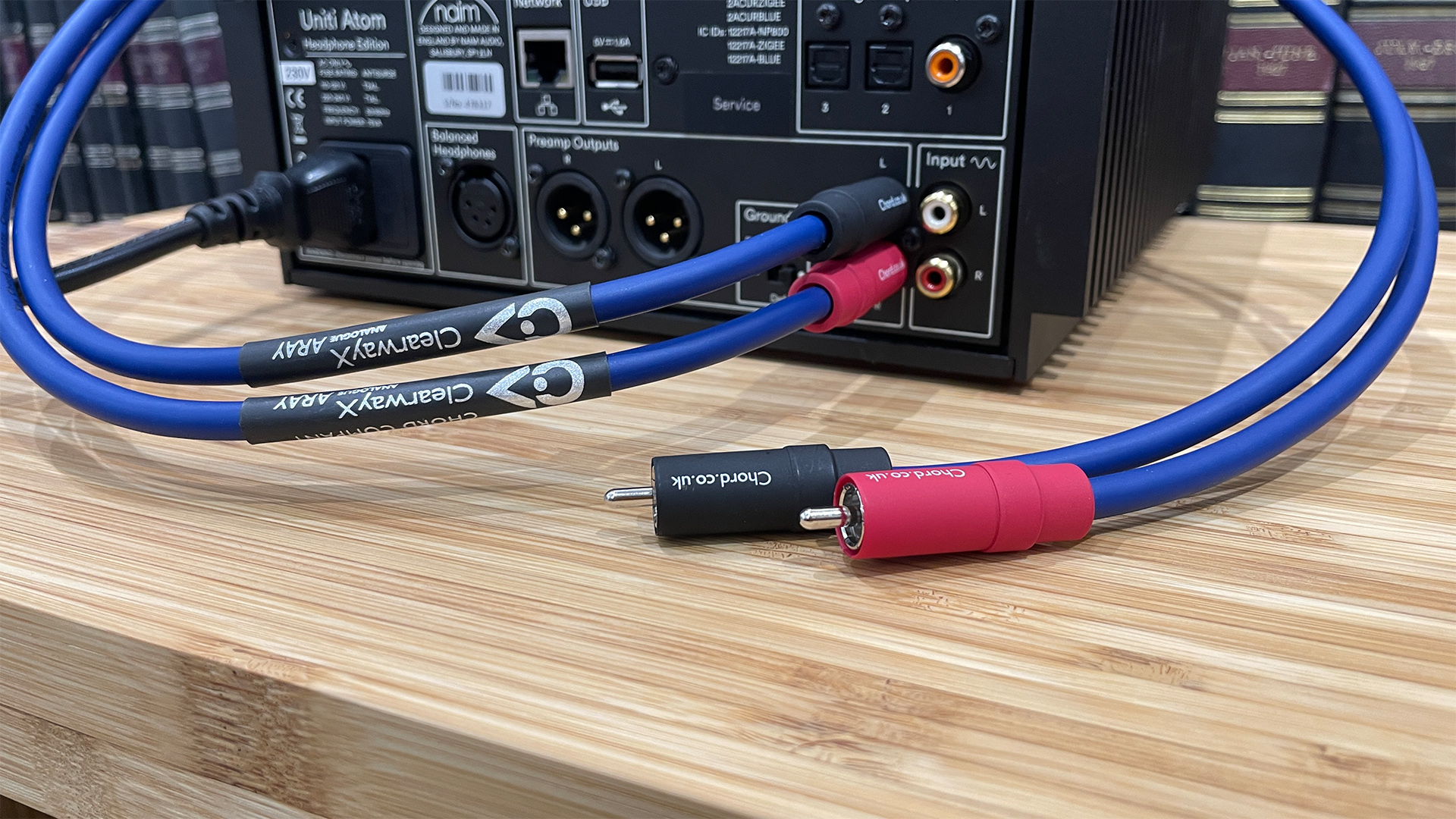
A good starting point for choosing audio cables is to get in touch with the manufacturer of your stereo amplifier and ask if they recommend a particular brand or model of interconnect. After all, engineers will have spent hours experimenting during the development process and you might be told some valuable nuggets of information which might make your job of finding something suitable more simple.
You could also speak to your local dealer to see if they have tried different cables during demos and found any that work particularly well with your amplifier.
Otherwise, when it comes to picking the right audio interconnects, a lot of your decision-making will revolve around price and, of course, your system, whether you're putting one together or already have one set up.
As a general rule of thumb, we'd recommend setting aside 10 to 15 per cent of the total cost of your system for cables. In the case of a hi-fi set-up, you'll be looking at analogue interconnects, speaker cables and, potentially, a digital optical or coaxial cable depending on the sources you're using. So you'll want to dedicate a share of this to a pair of suitable analogue interconnects.
If you currently own an excellent entry-level set-up, you don't need to spend big on interconnects. However, at the same time, nothing is stopping you from trying more premium pairs to see how your system reacts. On the flip side, If you own a high-end set-up, we'd suggest looking at price-comparable interconnects, though you could also audition some cheaper interconnects too. As always, the best way to choose any component for your system is to listen.
You'll also want to decide whether you want an unbalanced RCA cable (which is the most typical, cost-effective analogue solution and the type pictured above) or the balanced XLR cable (which is pricier but for good reason: it better rejects the electrical interference and radio frequency noise it is subject to in a room, and is considered a better choice particularly for longer distances). Popular audio cables such as those above come in a choice of either.
One last piece of advice would be to avoid choosing audio cables purely on their What Hi-Fi? star rating. Read our reviews to help you understand the character of the cable and see if it matches the character of your hi-fi system.
How we test audio cables
The What Hi-Fi? team has more than 150 years of combined experience in reviewing, testing and writing about consumer electronics. We have state-of-the-art testing facilities in London and Reading, where our expert reviewers do all our in-house testing. This gives us complete control over the testing process, ensuring consistency across every product we review.
The first thing we do to a pair of analogue interconnects is run them in by connecting them to our reference system over at least a weekend. In our experience, their impact on a system can change over time so we make sure they have a couple of days with an audio signal running through them before we start listening.
When connecting them, we also pay attention to the cable's directionality, which is usually marked on the plugs' cable sheaths via arrows. These arrows reveal the direction of the signal from the source to your amplifier.
During testing, we start listening through our high-end reference system as its transparency allows us to hear exactly how the characteristics of the cable are affecting the sound. We also connect them to a more price-compatible system to hear how they work in a more typical scenario. As we keep stock of class leaders in every hi-fi category, we can compare each cable to its closest price-matching rival(s) to see how it fares in the market context. Naturally, this helps us reach a verdict and star rating.
All our review verdicts are agreed upon by the team rather than an individual reviewer, to eliminate any personal preference and ensure we're being as impartial and thorough as possible, too. There's no input from PR companies or our sales team when it comes to our verdicts on audio cables, with What Hi-Fi? proud of having delivered honest, unbiased reviews for decades.
That's why if you take the plunge and buy one of the products recommended below, or on any of our other Best Buy pages, you can be confident you're getting a What Hi-Fi?-approved product.
You can read more about how we test and review products on What Hi-Fi? here.
FAQs
What do audio cables do?
Audio cables (otherwise known as RCA cables or interconnects) connect your source, whether that be a music streamer or CD player, to your stereo amplifier or active speakers. In a hi-fi separates system like this, they are necessary to carry line-level audio signals from one component to another.
There are various types of audio cable, including the most traditional and prevalent RCA (unbalanced) as well as XLR (balanced) on the analogue side; on the digital side, the most common audio cable is S/PDIF coaxial RCA or optical.
Which type of audio cable you want will largely depend on the connections offered by both your source and stereo amp/active speakers, though other factors play a part too. For example, if your setup requires a long cable run, a balanced XLR cable might be preferable over an unbalanced RCA one due to its superior blocking of electrical and RF (radio frequency) noise that inherently gets picked up by all cables in domestic spaces.
How much should you spend on audio cables?
There isn't a hard and fast rule here, but generally speaking, 10 to 15 per cent of your whole system cost should be dedicated to cabling. That includes speaker cables as well as audio cables.
When buying, be sure to measure the space your system is in so you know how many metres to buy, too – most specialist retailers sell speaker cables by the metre.
Recent updates
- January 2025: Checked all information is up to date.
- September 2024: Added the current Award-winning Chord Company's ClearwayX ARAY Analogue RCA entry into the main list.
- April 2024: Added Also Consider and FAQ sections to help better inform readers in their audio cable buying decision.
- October 2023: Added mentions of Chord Company's ClearwayX ARAY Analogue RCA audio cable following its What Hi-Fi? Awards 2023 win.
Today's best deals
Get the What Hi-Fi? Newsletter
The latest hi-fi, home cinema and tech news, reviews, buying advice and deals, direct to your inbox.
Becky is the managing editor of What Hi-Fi? and, since her recent move to Melbourne, also the editor of the brand's sister magazines Down Under – Australian Hi-Fi and Audio Esoterica. During her 11+ years in the hi-fi industry, she has reviewed all manner of audio gear, from budget amplifiers to high-end speakers, and particularly specialises in headphones and head-fi devices. In her spare time, Becky can often be found running, watching Liverpool FC and horror movies, and hunting for gluten-free cake.
-
Squall Leonhart I would recommend Atlas Element Superior. I have been using it for almost a year and I havent had the urge to upgrade.Reply -
MetAlbertR Some of the reasons to buy are hilarious:Reply
"Helps tie instruments together", "Helps with detail and timing" and "Spacious, clean soundstage".
I notice you seem to no longer review digital cables. Why is that? -
abacus Before purchase always do a blind AB test between basic cable and any exotic cable, as I have yet to come across any of these special cables that make any difference to the sound. (A good quality cable should neither add or take anything away, so be wary of anybody that says their cable alters the sound)Reply
If you are really worried, get your cable from a Pro Music Store, (They will be a fraction of the price of these so called super cables) as then you will have the same quality as used in professional film & music production studios, whose equipment makes even Hi-End Hi-Fi sound mundane.
Bill -
iMark They still write the same audio waffle.Reply
MetAlbertR's remark about digital cables is interesting. Have they finally worked out that there is no difference in digital cables? -
F8lee I get the sense that "exotic cables" are analogous to "UV filters to protect your front lens element" that camera stores often try to sell to unsuspecting customers.Reply
Basically, it's about the profit margins. Having worked in the photo retail industry years ago, I know that in order to keep competitive with the mail-order houses the profit we would make on a high end camera might amount to being $40. However, if we sold the customer on the idea that "you need a UV filter to protect that precious front element!" we would garner $20 profit out of the $40 sale of the filter.
THe cable thing seems much the same - perhaps retailers cannot get much margin on the big gear that is always comparison shopped by potential customers; but once they decide they like that amp or speaker setup then pushing the "special" cables for "better sound" sounds like much the same strategy. -
DELBOY14 I see the doubters are on here with there " all cable's are the same". I think if you have a fairly good system you will be able to tell the difference, I did that by going to the HIFI show a couple of years back and Chord had a demonstration room set up where they would play a track with there cheapest RCA cables (C-LINE) then they swapped them out the Clearway, a clear step up in detail retrieval, then in went Shawline RCAs and again a clear step up in depth with a warmer tone, after that I had trouble hearing the difference or at least enough of a difference for the amount of money that these more expensive cable's cost.Reply
For me It was proof enough that spending £90 on RCA cables on a connection between a £600 CD and £500 AMP would pay dividend's and it proved so, I already had £40 C-LINE RCAs and when replacing with the £90 Clearway RCA cables I was very pleased with the gain in detail and midrange clarity, there where instruments not detected before that where now present.
I have now upgraded the AMP to a MF M3i and run a M-DAC+ and have tried a couple of cables Digital Chord Clearway and Tellurium blue Q digital and the Tellurium is better although cost a fair bit more.
Of course if you have mismatched amps, decks, CD players, Dacs, or there poor quality HiFi then your not going to here the difference are you.
For all those doubters out there stop bleating about a multi million pound industry being a load of old cobblers, if it was then by now those that spend vast amounts of money would have just fitted bell wire because if they don't here an improvement then they would look else where, that's because they can afford to.
Anyone out there in doubt go to a good dealers, ask for a demo of a £1000 amp, £1000 CD player and dealer chosen speakers to match that are all run in, tell them to put say Chord C-LINE RCA cables between amp and CD, then listen to a good CD that is not load head banging rock and roll but say Fleetwood Mac, Tusk, Brown Eyes. listen a few times and listen to that fabulous guitar work, then ask for the cables to be changed to Clearway RC's, you will hear a resounding difference in the detail and space around the instruments.
Simple really a child could tell you the difference. -
MetAlbertR Reply
A child will also believe anything you tell them.DELBOY14 said:I see the doubters are on here with there " all cable's are the same". I think if you have a fairly good system you will be able to tell the difference, I did that by going to the HIFI show a couple of years back and Chord had a demonstration room set up where they would play a track with there cheapest RCA cables (C-LINE) then they swapped them out the Clearway, a clear step up in detail retrieval, then in went Shawline RCAs and again a clear step up in depth with a warmer tone, after that I had trouble hearing the difference or at least enough of a difference for the amount of money that these more expensive cable's cost.
For me It was proof enough that spending £90 on RCA cables on a connection between a £600 CD and £500 AMP would pay dividend's and it proved so, I already had £40 C-LINE RCAs and when replacing with the £90 Clearway RCA cables I was very pleased with the gain in detail and midrange clarity, there where instruments not detected before that where now present.
I have now upgraded the AMP to a MF M3i and run a M-DAC+ and have tried a couple of cables Digital Chord Clearway and Tellurium blue Q digital and the Tellurium is better although cost a fair bit more.
Of course if you have mismatched amps, decks, CD players, Dacs, or there poor quality HiFi then your not going to here the difference are you.
For all those doubters out there stop bleating about a multi million pound industry being a load of old cobblers, if it was then by now those that spend vast amounts of money would have just fitted bell wire because if they don't here an improvement then they would look else where, that's because they can afford to.
Anyone out there in doubt go to a good dealers, ask for a demo of a £1000 amp, £1000 CD player and dealer chosen speakers to match that are all run in, tell them to put say Chord C-LINE RCA cables between amp and CD, then listen to a good CD that is not load head banging rock and roll but say Fleetwood Mac, Tusk, Brown Eyes. listen a few times and listen to that fabulous guitar work, then ask for the cables to be changed to Clearway RC's, you will hear a resounding difference in the detail and space around the instruments.
Simple really a child could tell you the difference. -
Reply
As per my signature - £4K amp, £4K CD player, Van Damme Blue vs QED... no difference heard. I have my opinion and you have yours, I'm not a child so I'll leave it there. I would rather spend my money on more music.DELBOY14 said:I see the doubters are on here with there " all cable's are the same". I think if you have a fairly good system you will be able to tell the difference, I did that by going to the HIFI show a couple of years back and Chord had a demonstration room set up where they would play a track with there cheapest RCA cables (C-LINE) then they swapped them out the Clearway, a clear step up in detail retrieval, then in went Shawline RCAs and again a clear step up in depth with a warmer tone, after that I had trouble hearing the difference or at least enough of a difference for the amount of money that these more expensive cable's cost.
For me It was proof enough that spending £90 on RCA cables on a connection between a £600 CD and £500 AMP would pay dividend's and it proved so, I already had £40 C-LINE RCAs and when replacing with the £90 Clearway RCA cables I was very pleased with the gain in detail and midrange clarity, there where instruments not detected before that where now present.
I have now upgraded the AMP to a MF M3i and run a M-DAC+ and have tried a couple of cables Digital Chord Clearway and Tellurium blue Q digital and the Tellurium is better although cost a fair bit more.
Of course if you have mismatched amps, decks, CD players, Dacs, or there poor quality HiFi then your not going to here the difference are you.
For all those doubters out there stop bleating about a multi million pound industry being a load of old cobblers, if it was then by now those that spend vast amounts of money would have just fitted bell wire because if they don't here an improvement then they would look else where, that's because they can afford to.
Anyone out there in doubt go to a good dealers, ask for a demo of a £1000 amp, £1000 CD player and dealer chosen speakers to match that are all run in, tell them to put say Chord C-LINE RCA cables between amp and CD, then listen to a good CD that is not load head banging rock and roll but say Fleetwood Mac, Tusk, Brown Eyes. listen a few times and listen to that fabulous guitar work, then ask for the cables to be changed to Clearway RC's, you will hear a resounding difference in the detail and space around the instruments.
Simple really a child could tell you the difference. -
abacus ReplyDELBOY14 said:I see the doubters are on here with there " all cable's are the same". I think if you have a fairly good system you will be able to tell the difference, I did that by going to the HIFI show a couple of years back and Chord had a demonstration room set up where they would play a track with there cheapest RCA cables (C-LINE) then they swapped them out the Clearway, a clear step up in detail retrieval, then in went Shawline RCAs and again a clear step up in depth with a warmer tone, after that I had trouble hearing the difference or at least enough of a difference for the amount of money that these more expensive cable's cost.
For me It was proof enough that spending £90 on RCA cables on a connection between a £600 CD and £500 AMP would pay dividend's and it proved so, I already had £40 C-LINE RCAs and when replacing with the £90 Clearway RCA cables I was very pleased with the gain in detail and midrange clarity, there where instruments not detected before that where now present.
I have now upgraded the AMP to a MF M3i and run a M-DAC+ and have tried a couple of cables Digital Chord Clearway and Tellurium blue Q digital and the Tellurium is better although cost a fair bit more.
Of course if you have mismatched amps, decks, CD players, Dacs, or there poor quality HiFi then your not going to here the difference are you.
For all those doubters out there stop bleating about a multi million pound industry being a load of old cobblers, if it was then by now those that spend vast amounts of money would have just fitted bell wire because if they don't here an improvement then they would look else where, that's because they can afford to.
Anyone out there in doubt go to a good dealers, ask for a demo of a £1000 amp, £1000 CD player and dealer chosen speakers to match that are all run in, tell them to put say Chord C-LINE RCA cables between amp and CD, then listen to a good CD that is not load head banging rock and roll but say Fleetwood Mac, Tusk, Brown Eyes. listen a few times and listen to that fabulous guitar work, then ask for the cables to be changed to Clearway RC's, you will hear a resounding difference in the detail and space around the instruments.
Simple really a child could tell you the difference.
Did you do a double blind test on the cables with everything level matched so as to rule out inconsistences and placebo effect, if not then your claims are just opinions and not facts, so your assertion that a child could hear a difference is totally nonsensical.
I realise this post will not change your mind or belief (Just like a flat earthier will always ignore the truth and keep posting easily debunked claims) but hopefully it will help others to not fall into the same trap and have an open mind so that they realise that just because you believe you hear a difference doesn’t mean there actually is a difference. (Hence the level matched double blind test)
In the final analysis always try before you buy and if you are happy with something (Whether it actually makes a difference of not) and you can afford it, then go for it, as happiness cannot be measured.
Bill -
DELBOY14 Reply
Actually I took 4 tables and smoked a tree so as to make sure I was self opinionated and knew everything and would be guided by some myth blind testing an inconsistent placebo effect, but thanks all the same I know what happiness is, as do all those millions that have walked the cable path. cheers mate. 🙏abacus said:Did you do a double blind test on the cables with everything level matched so as to rule out inconsistences and placebo effect, if not then your claims are just opinions and not facts, so your assertion that a child could hear a difference is totally nonsensical.
I realise this post will not change your mind or belief (Just like a flat earthier will always ignore the truth and keep posting easily debunked claims) but hopefully it will help others to not fall into the same trap and have an open mind so that they realise that just because you believe you hear a difference doesn’t mean there actually is a difference. (Hence the level matched double blind test)
In the final analysis always try before you buy and if you are happy with something (Whether it actually makes a difference of not) and you can afford it, then go for it, as happiness cannot be measured.
Bill

